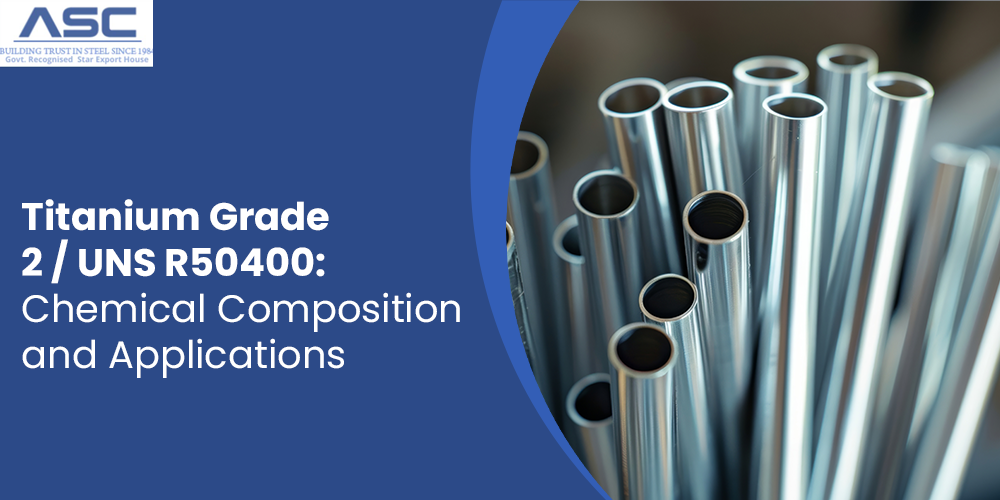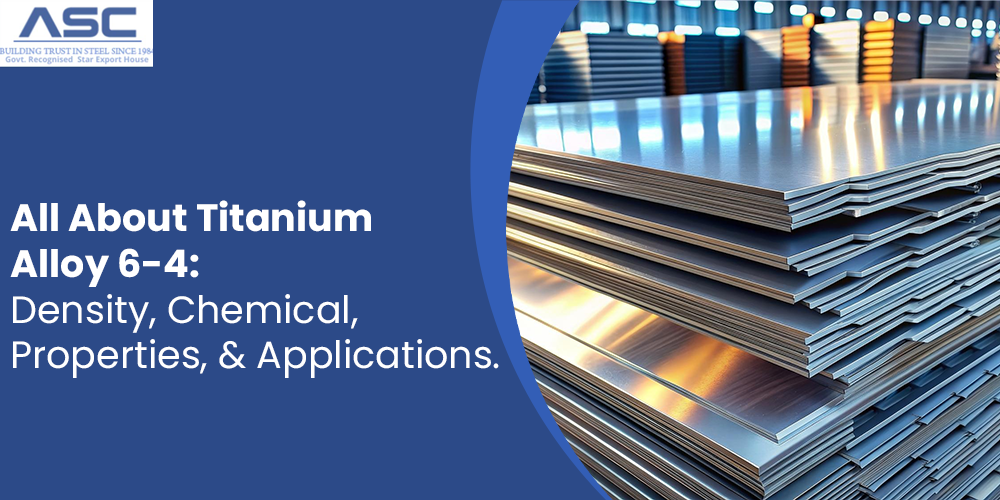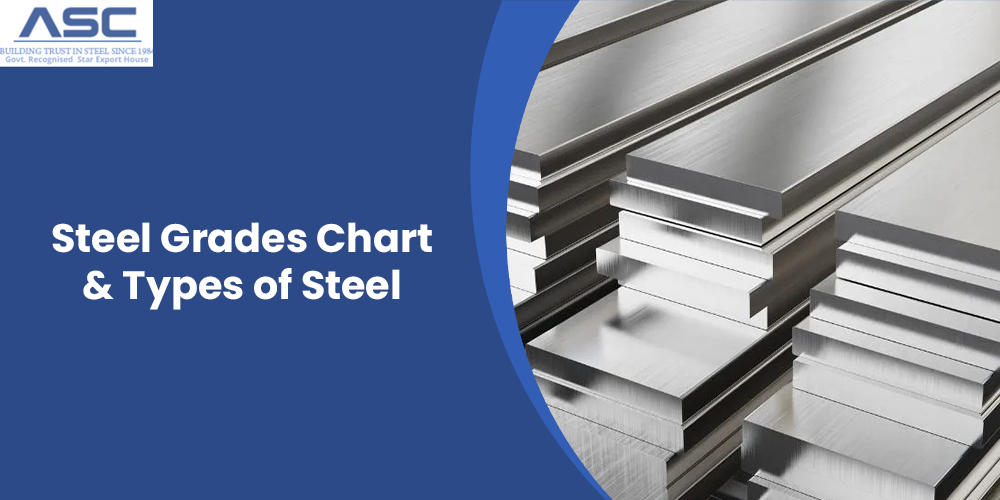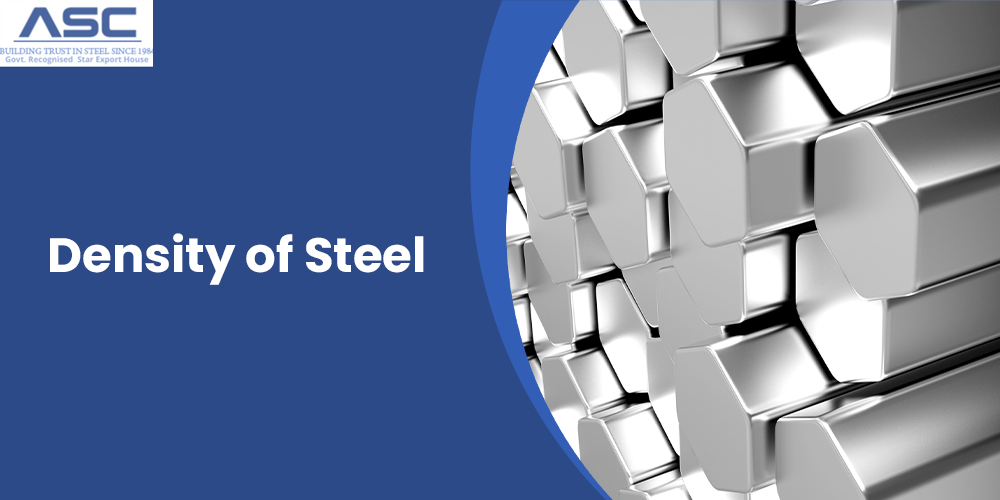Titanium Grade 2 / UNS R50400: Chemical Composition and Applications
by AMC
Posted on August 21, 2024 at 12:40 PM

Titanium is renowned for its lightweight, exceptional corrosion resistance, and strength, making it a preferred material in various industrial applications. Among the commercially pure titanium grades, Grade 2 (UNS R50400) stands out due to its balance of mechanical properties and corrosion resistance.
Titanium Grade 2 Overview
Titanium Grades 1, 2, 3, and 4 are all commercially pure, containing a minimum of 99% titanium. The primary differences between these grades lie in their minor variations in chemical composition, which influence their mechanical properties and suitability for specific applications. Despite these differences, all grades offer similar levels of corrosion resistance, often surpassing that of stainless steels in many environments.
Why Choose Titanium Grade 2?
Grade 2 titanium is widely recognized for its excellent ductility and corrosion resistance. This makes it the alloy of choice for many industrial applications. Its attributes include:
- Good Ductility: Grade 2 titanium is highly formable and easy to work with, which is crucial for applications requiring complex shapes and designs.
- Exceptional Corrosion Resistance: Like other commercially pure titanium grades, Grade 2 excels in resisting corrosion in various environments, including seawater, chemicals, and high-temperature conditions.
- Versatile Applications: Due to its balanced properties, Grade 2 titanium is commonly used in industries such as aerospace, chemical processing, and medical implants.
Titanium gr 2 Specifications
| Form | ASTM | ASME | Military Standard | AMS |
| Bar | B348 | SB348 | MIL-T-9047 | 4902 |
| Plate & Sheet | B265 | SB265 | MIL-T-9046 CP-3 | 4902 |
Titanium gr 2 Chemical Composition
| (Ti) Titanium | Remainder |
| (Fe) Iron | 0.30 max |
| (O) Oxygen | 0.25 max |
| (C) Carbon | 0.08 max |
| (N) Nitrogen | 0.03 max |
| (H) Hydrogen2,3 | 0.015 max |
Industries & Applications of Titanium Grade 2
Titanium Grade 2 is highly sought after for its low density, making it an excellent choice in applications where reducing weight is crucial. This alloy is especially valuable in the medical and aerospace sectors. Its strength and corrosion resistance also make it ideal for use in the marine, chemical processing, and desalination industries.
Common Applications :
- Medical Devices: Used in implants and surgical tools due to its biocompatibility and durability.
- Aerospace Components: Ideal for aircraft parts where lightweight and strong materials are essential.
- Marine Industry: Employed in components exposed to seawater for its superior corrosion resistance.
- Chemical Processing: Suitable for reactors and pressure vessels that handle corrosive chemicals.
- Desalination: Utilized in systems for removing salt from seawater, benefiting from its resistance to saline environments.
Resistance to Corrosion
Titanium's commercially pure (C.P.) grades, including Grade 2, exhibit exceptional corrosion resistance due to a stable, protective oxide film that forms when exposed to oxygen. This film provides a strong defense against various environments, including oxidizing, neutral, and mildly reducing conditions.
Titanium Grade 2 is particularly renowned for its excellent resistance to seawater and marine atmospheric corrosion. While the corrosion resistance is generally consistent across all four C.P. grades, their mechanical properties differ due to variations in oxygen and iron content.
Grade 2 titanium also withstands attack from moist chlorides, metallic chlorides, chlorite and hypochlorite solutions, as well as nitric and chromic acids, organic acids, and many industrial gases, making it suitable for a wide range of applications.
Fabrication and Heat Treatment of Titanium Grade 2
Titanium Grade 2 is known for its good ductility, which makes it amenable to cold forming. For optimal results, the minimum bend radius should be 2T for material thicknesses under 0.070 inches, and 2.5T for thicknesses greater than 0.070 inches. The material is also easily machined, hot worked, and welded. When hot working, temperatures should be maintained between 400°F and 600°F. For stress relieving, heat the material to between 900°F and 1100°F, followed by either forced air or slow cooling. Annealing should be done at temperatures ranging from 1200°F to 1400°F for 6 minutes to 2 hours, then cooled in air.
Welding Grade 2 titanium can be carried out using methods such as MIG and TIG welding. Proper shielding with inert gas is essential to prevent oxygen contamination and ensure the weld's integrity. A blend of argon and helium is commonly used for this purpose, though it's important to test the mixture before finalizing the welding procedure. Preheat or post-heat treatments are generally not necessary for Grade 2 titanium.

All About Titanium Alloy 6-4: Density, Chemical, Properties, & Applications
Titanium alloys play a crucial role in modern engineering due to their unique combination of strength, light weight, and resistance to corrosion.

